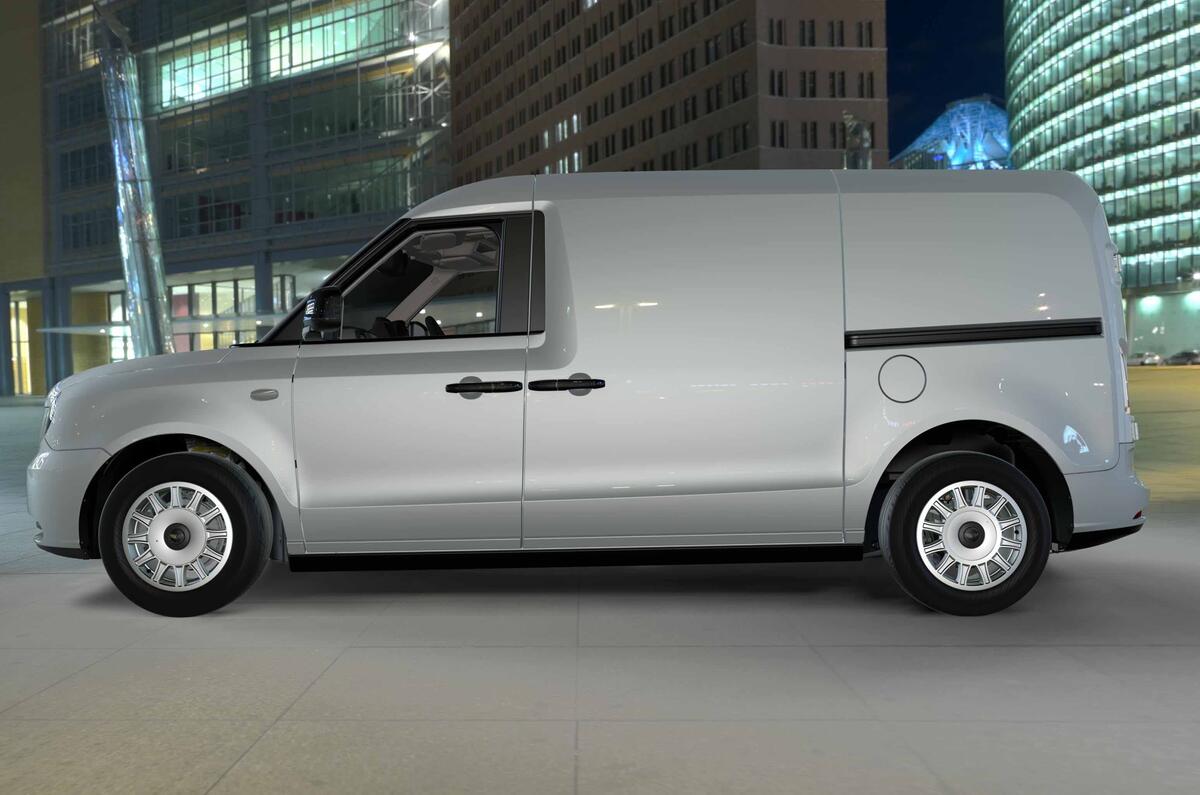The London Electric Vehicle Company (LEVC) has delayed plans to launch a new range-extender van this year, according to the firm's boss.
The company has planned to start testing the new machine, which it will offer alongside its TX taxi, ahead of sales starting later this year. It was initially targeting public sector fleets, with the Geely-owned manufacturer already in talks with the Metropolitan Police and London Fire Brigade about running the prototype vans.
But LEVC chief executive Chris Gubbey told Reuters the 2019 launch had now been delayed until "the early 2020s", so that the firm can draw more on the resources of its parent company. He added: “On our own, we’re a relatively small player and for us to charge ahead and develop our own product and then try to maintain that and put further investment in to build off that, does not make sense."
LEVC revealed the first image of its plug-in hybrid van that's a sibling to the new TX black cab earlier this year, and the two appear to share styling cues at the front, although the van's profile and rear are distinct from its passenger-carrying sibling.
LEVC said it believes the van market “is ready for a disruptive new entrant, which will offer a very different value proposition”.
Rivals will be diesel-powered vans such as the Ford Transit Connect, with a near-equivalent total cost of ownership offsetting what is expected to be a higher purchase price.
First drive of the new TX black cab
The company added that the vehicle will not focus on “last-mile delivery” but, instead, will provide the link between out-of-town distribution centres and city destinations. “Our segment is vans that undertake 100 miles a day — a role currently filled by one-tonne, medium-sized diesel vans,” LEVC said.
The light commercial vehicle will be built at LEVC’s £325 million factory in Warwickshire, alongside the range-extended EV black cab. The purpose-built facility was opened last year as the UK’s first dedicated site for EV production. LEVC expects that there will be 10,000 vehicles built at the plant by 2020, split equally between the taxi and van. That is set to expand to 20,000 vehicles by 2022.
The move to expand the line-up beyond the black cab is part of a huge investment by Chinese parent company Geely, since LEVC needs to remain profitable amid increasing competition and stringent regulations on air quality and emissions in major cities.
The van will use the same powertrain as the TX: an advanced battery electric set-up with a 1.5-litre petrol generator. This range-extender technology gives the TX a range of more than 400 miles and the car can run for more than 70 miles on electric power alone. It can charge its depleted battery to almost full in 20 minutes via a rapid charger, in two hours with a fast charger and in eight to 10 hours on a trickle charger.
Similar figures are expected for the van, although they are likely to be slightly lower given the vehicle's extra weight.
LEVC hasn't disclosed more details but said the range-extender not only means cleaner vehicles but also lower running costs. The van could also avoid extra charges for diesel commercial vehicles, such as the London Low Emission Zone, that are in place or planned in several major cities. “We are aiming to deliver a vehicle that, for its size, will deliver a competitive total cost of ownership," LEVC said.




Join the debate
Add your comment
What could be an interesting alternative version
Is one with wheelchair access for disabled user/drivers/owners, bought or leased under the motability scheme, it would give them the choice of decent, safe, green vehicle.
Nice to see a Van being made in the UK again!!!!
Because this Van is made in the UK ,the Met & LFB should buy it straight away!!!
If they still need "conventional-powered" vehicles their second choice should be British made Vauxhall Vivaro's & not Turkish built Transits or German built Mercedes!!!!
jagdavey wrote:
The joys of patriotism Vs budgets.
er no...
The unfairness that is the EEC tender rules, hopefully soon to be forgotten
MPV?
I hope they do a 7/8 seat passenger MPV version. That would really be interesting.
Jeremy wrote:
There are plans to expand the models, but a 7 seat MPV was not one that was talked about.